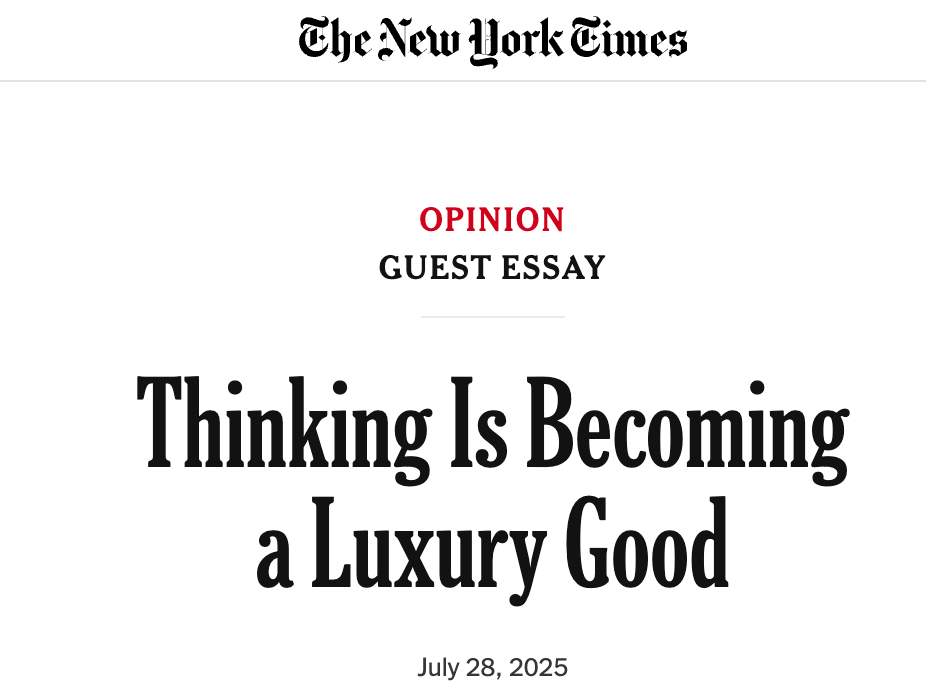The Viral Mandate of Heaven
"Box office" leadership and post-liberal legitimacy
What does political legitimacy look like, when voters don’t read? Recently I spent an enjoyable hour with First Things Editor-In-Chief Rusty Reno, discussing my essay The King and the Swarm. which argued that the digital revolution spells the end of liberal democracy.
Print literacy is, I’ve argued, fundamental to the shared understanding of what a person is upon which modern democracy is founded. It has been declining for some time, and since we transitioned definitively to a digital-first culture it’s fallen off a cliff: a development with likely terminal medium-term consequences for liberal democracy as it’s currently understood.
James Marriott waved the shroud fairly comprehensively on this topic recently:
I’ll argue at greater length in the (perhaps ironically) long-form version of The King and the Swarm that we needn’t just be pessimistic about this development. “Civilisation” is not going to end, unless you define this phenomenon very narrowly. Expansively defined, we’ve had “civilisations” much longer than we’ve had mass literacy, and I’m confident that we will will continue to do so after mass literacy as well.
But I do agree with Marriott that the current direction of travel will be disruptive. Digital is reactionary: less a revolution than a putsch. For example, as I argued in the New York Times recently, it’s already widening a class divide between those with the discipline and sociocultural capital to cultivate long-form thought, and those who do not:
And the big question is what happens to democracy. Once we abandon the distinctive shared consciousness and political priors that formed the essential substrate for liberal democracy, what does politics look like? How do we assess whether a regime is just? And before we get to just rule, we also have the tricky business of how leaders are chosen. Unless we take the Bourbon-restorationist approach adumbrated by Nathan Pinkoski’s response to The King and the Swarm, a tricky business given modernity’s regicidal sensibility, leaders must emerge somehow.
Marriott rightly namechecks Elizabeth Eisenstein’s book on the printing press, in his overview of print’s many transformative contributions. But to my eye, one of Eisenstein’s most interesting observations is that some of print’s revolutionary effects were produced not via rupture but continuity. That is: people did the same things as before, but the results were startlingly different now their efforts were aided by the preservative and multiplicative power of print.
For example Eisenstein describes how print’s association with a sudden acceleration in the accumulation of knowledge was an effect of transposing the medieval scholarly love of taxonomy from error-prone scribal and mnemotechnic forms, to the more precisely reproducible one of print. Similarly, scholarly efforts to preserve and purify ancient texts - motivated by veneration for those ancient authors - ended up challenging ancient authority, as critical editions proliferated and their errors or confusions were cross-referenced. Copernicus was not trying to knock Ptolemy off his astronomical pedestal, but to set his work in order.
Eisenstein’s insight holds for us in the context of this new information revolution too - including in politics. We are already seeing, in fact, how transposing mass-democratic politics to the digital realm produces startlingly different results. One of the ways this is already evident is in how political superstars emerge, under digital conditions.
Under the digital dispensation, what marks someone out for political stardom is not technocratic competence, or virtue, or even being physically attractive. It’s an elusive quality I characterise as “being box office”. This is roughly cognate with having charisma, but transposed into the digital register it lands very differently. Some people just have an instinct for, and natural ease with, communicating in the digital register: the gesture or passing phrase that goes viral; the symbolic clip that causes Discourse and drives engagement; the capacity to build a store of mimetic associations among a digital public. My rule of thumb is “can you imagine someone mixing this person’s utterances over a bass drop, and it not being cringe”. This is only obliquely related to “having good policies” or “being able to function as a capable manager” but is nonetheless now indispensable for digital-era democratic legitimacy.
As things stand, we associate being box office mostly with “insurgent” Right-wing challengers to the late liberal technocratic norm. The two leaders I named in the article as possessing this quality were Donald Trump and El Salvador’s President Nayib Bukele. But toward the end of my conversation with Rusty we touched on an important caveat. While the overall direction of post-literate travel is reactionary in the sense of reversing many of the cognitive shifts that produced modernity, it doesn’t follow from this that box-office leaders are necessarily “Right-wing” as we understand that term now.
Lo and behold: we’re now seeing Left-wing political actors emerge, who rather than embracing the “swarm” style of technocratic legitimation that was so gravely discredited during Covid, also derive their public claim to legitimacy from being “box office”. Just this year, we’ve seen two such figures emerge, one on either side of the Atlantic.
Keep reading with a 7-day free trial
Subscribe to Mary Harrington to keep reading this post and get 7 days of free access to the full post archives.




